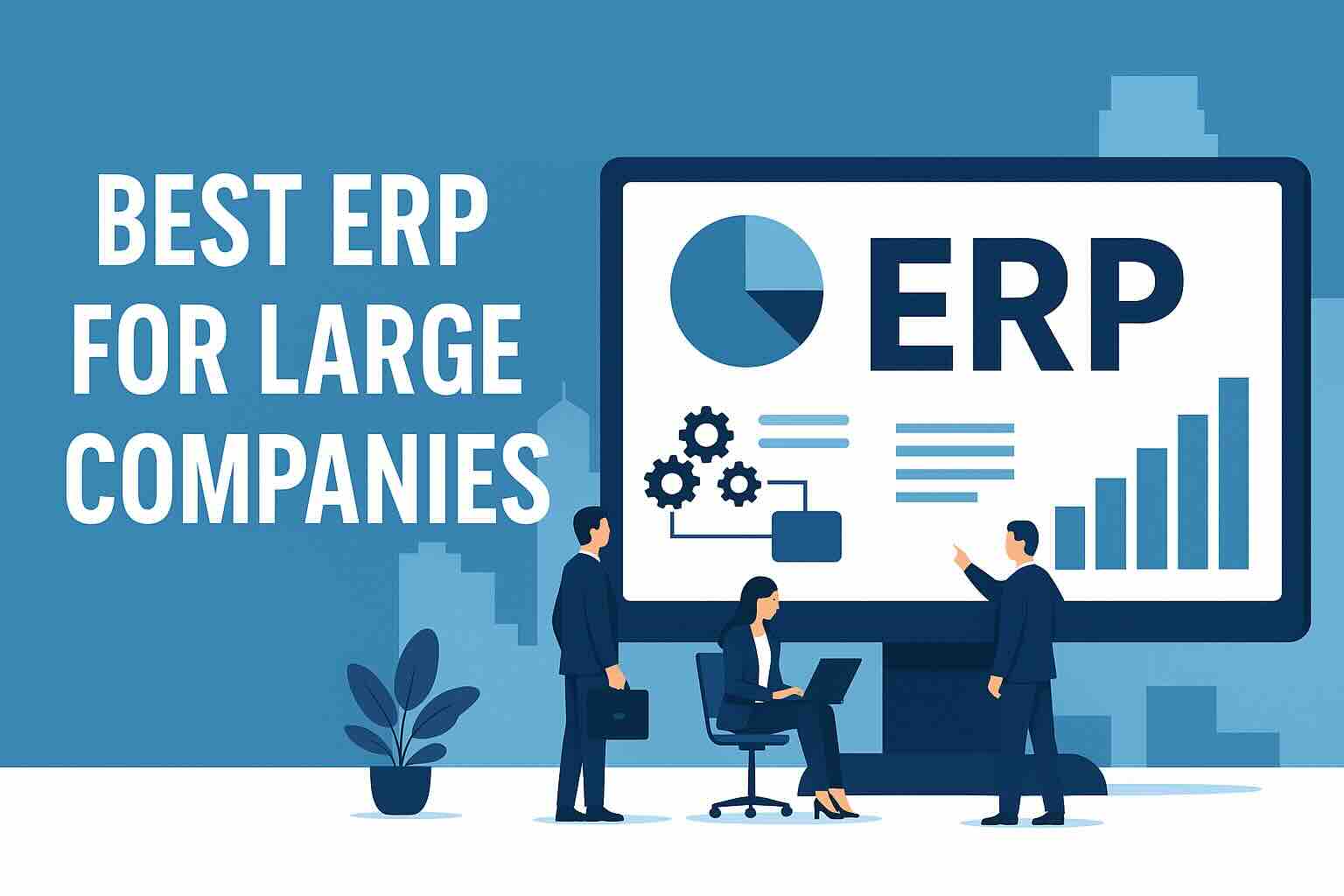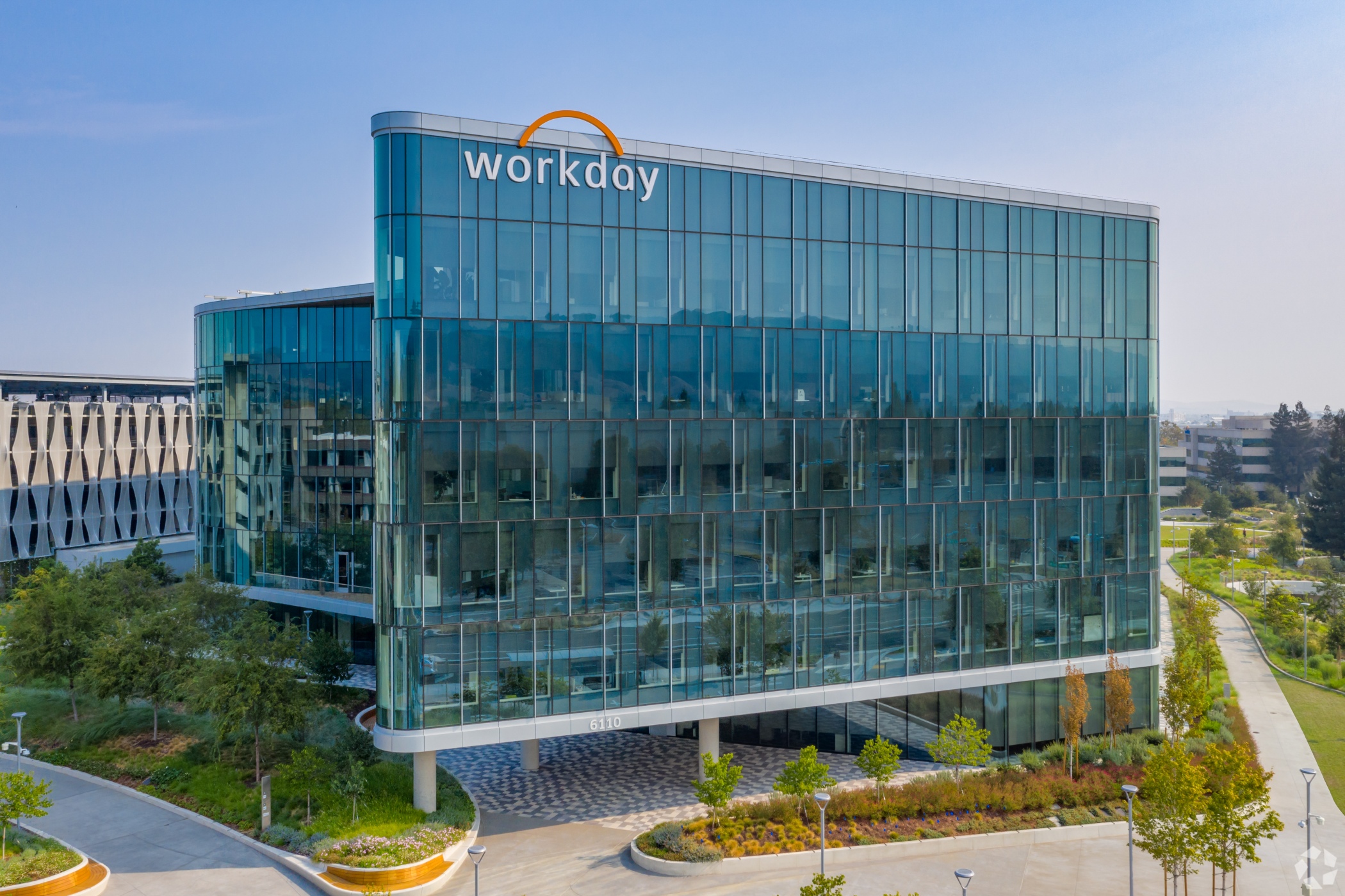Compare the Best Enterprise Resource Planning Software

Enterprise Resource Planning (ERP) software is designed to streamline and integrate core business processes such as accounting, procurement, project management, supply chain management, and more into a single, unified system. With a vast array of ERP solutions available today, businesses of all sizes must carefully evaluate their needs to choose the best enterprise resource planning software. In this article, we’ll compare the top ERP systems on the market, highlighting their features, strengths, and weaknesses to help you make an informed decision.
1. SAP S/4HANA
SAP S/4HANA is one of the most advanced ERP solutions in the market, primarily designed for large enterprises. Powered by SAP’s proprietary in-memory computing technology (HANA), it delivers real-time data processing and analytics across the entire organization. The platform is equipped with AI and machine learning capabilities, enabling businesses to gain predictive insights and automate routine tasks.
Key Features:
- In-Memory Computing: SAP HANA allows for rapid data retrieval and real-time analytics by storing data in memory rather than traditional disk-based systems. This results in faster insights and more agile decision-making.
- AI and Machine Learning: Integrated AI features such as intelligent automation, predictive analytics, and forecasting tools help businesses optimize operations and anticipate future trends.
- Industry-Specific Solutions: SAP S/4HANA offers tailored modules for various industries, including manufacturing, retail, finance, and healthcare, ensuring that businesses can address their unique needs.
- Global and Local Compliance: Comprehensive support for multinational operations, ensuring compliance with various regulatory standards, including tax codes, accounting principles, and legal frameworks.
Pros:
- Scalability: Designed for large enterprises, SAP S/4HANA scales effortlessly, handling complex, multi-national operations and large datasets.
- Advanced Analytics: Real-time data processing and predictive insights enable companies to make informed decisions faster.
- Comprehensive Customization: Extensive configuration options allow businesses to tailor the platform to their specific industry and operational needs.
- Automation: Streamlines workflows through advanced AI-powered automation, reducing manual effort in processes such as financial reporting and inventory management.
Cons:
- High Cost: SAP S/4HANA has a higher total cost of ownership due to its implementation, licensing, and ongoing maintenance fees.
- Complexity: The steep learning curve and complexity of the system require skilled IT staff or external consultants for implementation and ongoing management.
- Time-Consuming Deployment: Deployment times can be lengthy, particularly for large-scale implementations with extensive customization.
Ideal for: Large multinational corporations with complex operational needs and budgets to accommodate a highly scalable and customizable solution.
Click this link to find out more about SAP S/4HANA.
2. Oracle ERP Cloud
Oracle ERP Cloud is a comprehensive cloud-based solution designed to serve large organizations and enterprises. It offers a robust set of tools for managing financials, project management, procurement, and risk management. The platform is built on Oracle’s cloud infrastructure and is heavily focused on leveraging AI and machine learning to automate tasks and improve operational efficiency.
Key Features:
- Automated Financial Management: Provides real-time visibility into financial performance, automates repetitive accounting tasks, and ensures regulatory compliance.
- AI and Machine Learning Integration: Predictive analytics and AI-powered automation tools streamline processes, reduce manual errors, and improve decision-making.
- Risk and Compliance Management: The platform includes built-in compliance features to manage complex regulatory requirements and track risks across operations.
- Robust Cloud Infrastructure: Oracle’s cloud platform ensures high availability, security, and scalability, ideal for businesses that need to handle large datasets and transactions.
Pros:
- Enhanced Security: Oracle ERP Cloud is built on Oracle’s secure cloud infrastructure, offering advanced data protection, encryption, and compliance certifications.
- Financial and Risk Management: Strong financial management and reporting capabilities make it particularly valuable for organizations with complex accounting needs.
- Seamless Integration: The platform integrates well with other Oracle tools and third-party applications, ensuring smooth workflows across different systems.
- AI-Driven Efficiency: AI-powered features reduce manual work, making processes like financial close, procurement, and project tracking faster and more accurate.
Cons:
- High Cost: Implementation and licensing fees can be expensive, particularly for smaller businesses.
- Complex Implementation: Due to the system’s complexity, deployment often requires external consultants or highly skilled IT staff.
- Steep Learning Curve: The interface can be overwhelming for new users, requiring significant training to maximize its potential.
Ideal for: Large enterprises seeking a cloud-based ERP with strong financial and risk management features, and a focus on automation and security.
Click this link to find out more about Oracle Cloud.
3. Microsoft Dynamics 365
Microsoft Dynamics 365 is a modular ERP and CRM solution that is suitable for businesses of all sizes. The platform allows organizations to choose from a wide array of applications for finance, sales, customer service, and operations, providing flexibility to scale and customize based on specific business needs. Dynamics 365 integrates seamlessly with Microsoft’s suite of products, such as Office 365 and Azure.
Key Features:
- Modular Design: Allows businesses to adopt individual applications such as finance, supply chain management, or sales, and scale them as needed.
- Integration with Microsoft Products: Native integration with Office 365, Teams, and Power BI facilitates collaboration and enhances reporting and analytics capabilities.
- Cloud, On-Premise, or Hybrid Deployment: Offers flexibility in deployment models, allowing businesses to choose cloud, on-premise, or hybrid options depending on their infrastructure and needs.
- Business Intelligence and AI: Built-in AI features, such as customer insights and forecasting, enable businesses to optimize operations and make data-driven decisions.
Pros:
- Flexible and Scalable: Suitable for small-to-medium businesses as well as large enterprises, thanks to its modular architecture and scalability.
- Seamless Microsoft Integration: Ideal for businesses already using Microsoft’s ecosystem, providing a unified experience across applications.
- User-Friendly Interface: The familiar Microsoft interface reduces the learning curve for employees.
- Affordable Entry-Level: SMBs can start with basic modules and scale up as their needs grow.
Cons:
- High Costs for Advanced Features: More advanced capabilities and customizations are locked behind higher pricing tiers, making it expensive as the business grows.
- Customization Complexity: While highly customizable, extensive configurations can take significant time and effort to implement.
- Limited Features for Non-Microsoft Users: Companies not using Microsoft products may find the platform less compelling due to integration limitations.
Ideal for: Businesses of all sizes that are already using Microsoft tools and need an ERP solution that is flexible, modular, and scalable.
Click this link to find out more about Microsoft Dynamics 365.
4. NetSuite ERP
NetSuite ERP, owned by Oracle, is a cloud-based solution designed for growing businesses and enterprises. It offers an extensive range of functionalities across financial management, CRM, e-commerce, and inventory management. NetSuite is known for its user-friendly interface and customizable dashboards, making it an appealing choice for companies with dynamic operational needs.
Key Features:
- Cloud-Native Platform: Built from the ground up as a cloud solution, ensuring seamless updates, security, and scalability without needing heavy IT resources.
- Comprehensive Financial Management: Features include multi-currency, multi-country support, financial close automation, and real-time financial reporting.
- Inventory and Supply Chain Management: Offers advanced features for inventory control, procurement, and supply chain management to optimize operations across various industries.
- E-commerce Integration: NetSuite’s integration with e-commerce platforms makes it ideal for companies with both online and offline sales operations.
Pros:
- User-Friendly Interface: Simple dashboards and customizable reports make it easy for users to manage their workflows.
- E-commerce Friendly: Ideal for businesses with online retail operations, with features like integrated shipping, order management, and customer service.
- Scalable: As a cloud-based platform, it is easy to scale as business needs grow.
- Built-In Analytics: Robust reporting and analytics tools help businesses make data-driven decisions across financials, supply chain, and customer service.
Cons:
- High Ongoing Costs: Subscription fees can add up over time, particularly for growing companies needing more advanced features.
- Time-Consuming Customization: Implementation and customization can be lengthy, requiring a significant investment of time and resources.
- Limited for Complex Enterprises: While it’s great for growing businesses, large enterprises with complex needs may find it lacks certain advanced functionalities.
Ideal for: Growing mid-sized businesses and enterprises with strong e-commerce and financial management needs.
Click this link to find out more about NetSuite.
5. Infor CloudSuite
Infor CloudSuite is designed to serve industry-specific needs, offering a range of solutions tailored to sectors like manufacturing, healthcare, and retail. Built on Infor’s robust cloud platform, CloudSuite focuses on usability and advanced analytics, providing businesses with intuitive tools to improve operational efficiency.
Key Features:
- Industry-Specific Functionality: Provides tailored modules for industries such as manufacturing, healthcare, and hospitality, ensuring that specialized processes are handled efficiently.
- Cloud-Native Platform: CloudSuite runs on the Infor cloud infrastructure, which supports easy scalability, security, and real-time updates.
- AI and Analytics: Built-in AI and business intelligence tools provide deep insights into operational performance and help businesses predict future trends.
- User Experience Focus: CloudSuite has a modern and intuitive interface, making it easy for users to navigate and complete tasks.
Pros:
- Tailored for Industries: Ideal for businesses in specialized sectors such as manufacturing and healthcare, thanks to its deep customization options.
- Modern, Intuitive Design: The user-friendly interface reduces the learning curve and encourages widespread adoption across departments.
- Scalable: As a cloud-native solution, it’s easy to scale as business operations expand.
- Flexible Deployment Options: Offers cloud, on-premise, and hybrid deployment models to meet the varying needs of businesses.
Cons:
- Limited Cross-Industry Functionality: Not as versatile for companies that don’t operate in the specific industries Infor caters to.
- Customization Complexity: Customizing the system for highly specialized needs can be time-consuming and costly.
- Higher Cost for Small Businesses: While ideal for enterprises, smaller businesses may find the cost and complexity of the solution excessive for their needs.
Ideal for: Industry-specific businesses like healthcare, manufacturing, or retail that require tailored ERP solutions with a focus on usability.
Click this link to find out more about Infor.
Conclusion
Selecting the best enterprise resource planning software requires careful evaluation of your business’s size, industry, and operational requirements. SAP S/4HANA and Oracle ERP Cloud are ideal for large enterprises with complex needs, while NetSuite and Microsoft Dynamics 365 offer more flexibility for growing businesses. For those in specific industries such as manufacturing or healthcare, Infor CloudSuite and Epicor ERP provide specialized functionalities. Ultimately, understanding the unique needs of your business will guide you in choosing the best ERP solution for long-term growth and success.
To compare these ERP solutions and many more, you can use our new AI-powered Compare ERP tool. It’s free to use and you get a guaranteed discount on your first year’s licence fees with a referral from Compare ERP.









